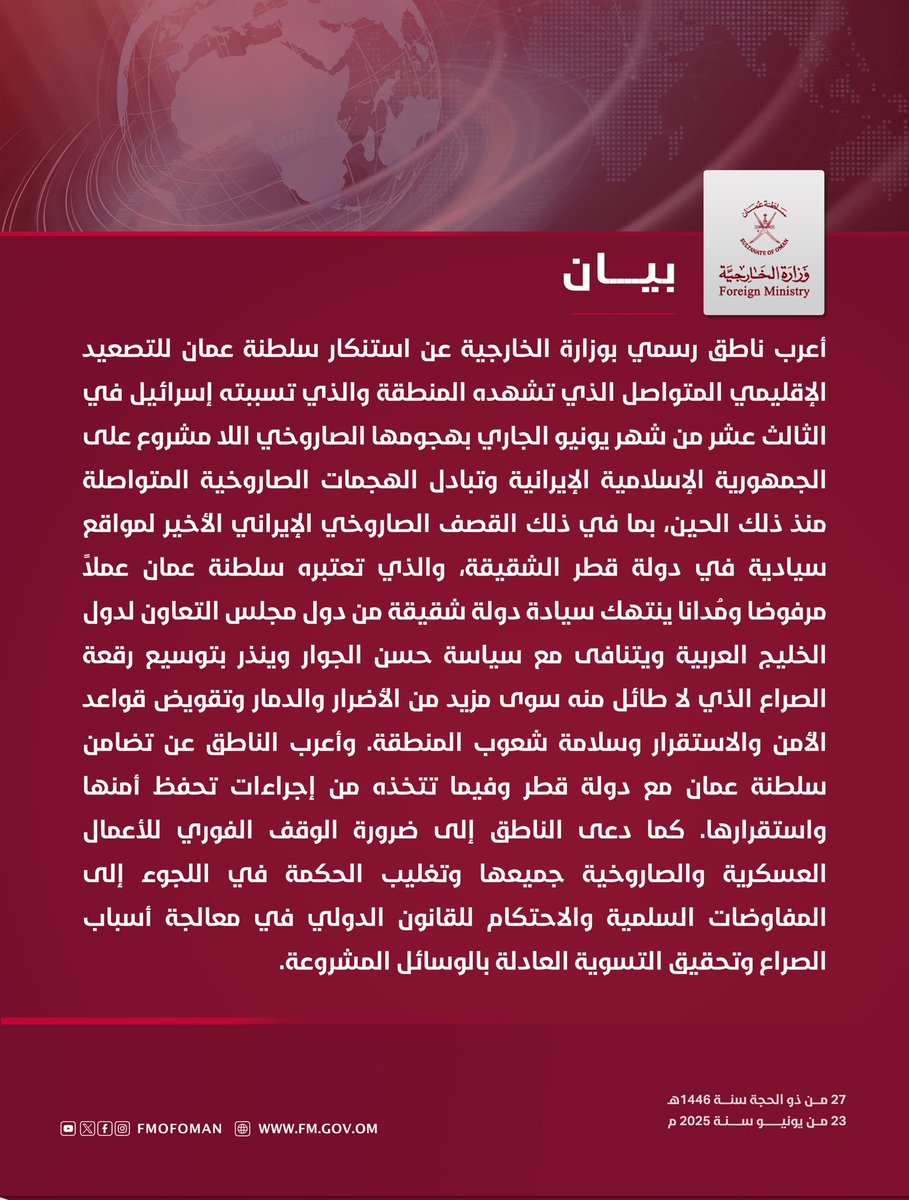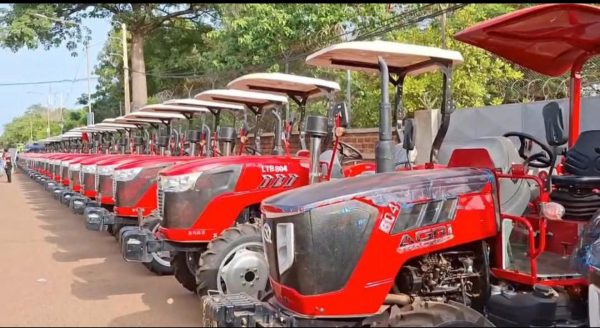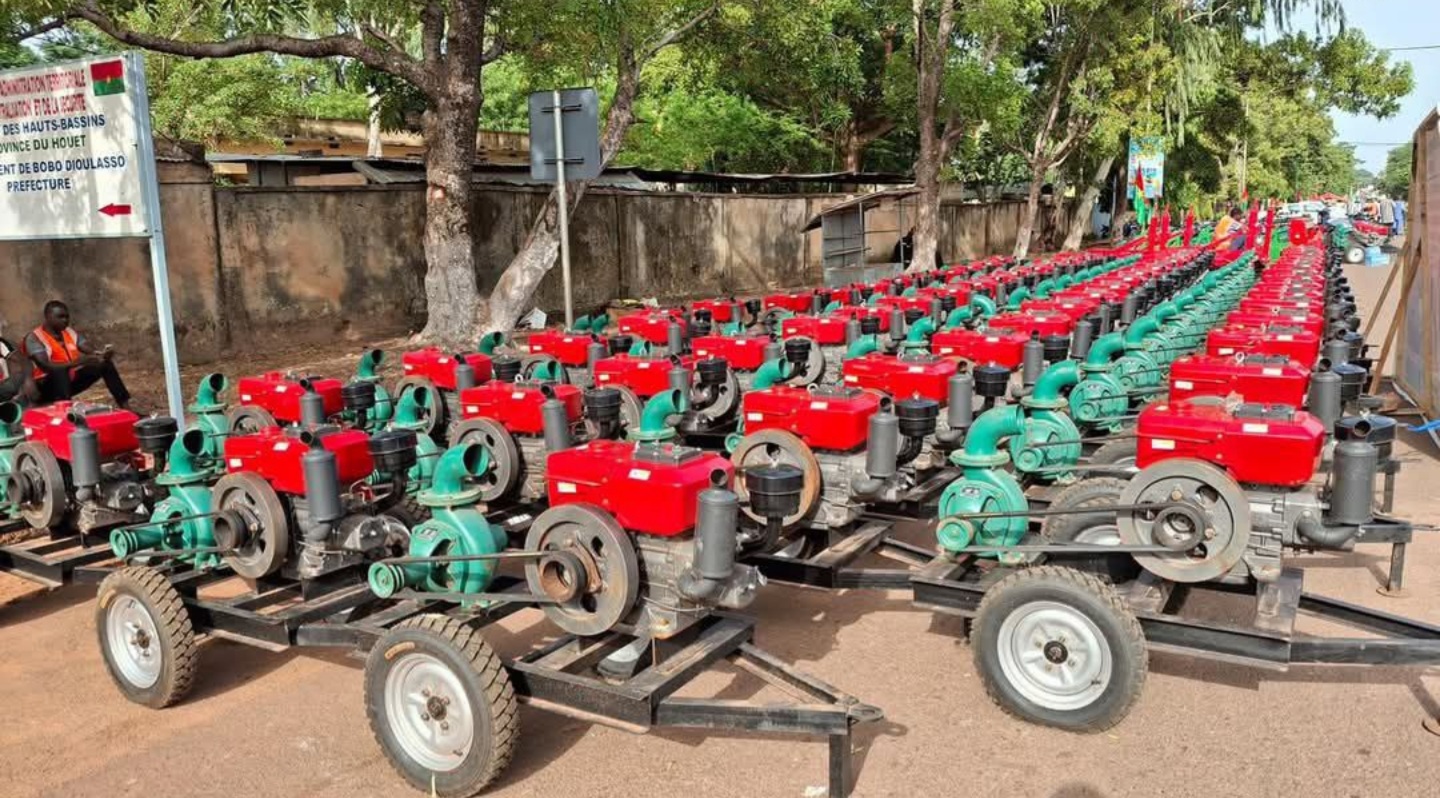Marches, music, panels, and declarations commemorating African Liberation Day organized by movements across the continent highlighted the spirit of resistance and unity.
Across the African continent, African Liberation Day (ALD) 2025 was marked by a powerful display of anti-imperialist sentiments, cultural celebrations, and political clarity. From the streets of Accra, to Johannesburg, from Dar es Salaam to Nairobi, this year’s commemorations echoed the popular desire for a truly liberated, united, and sovereign Africa.
Ghana: Solidarity with the Sahel and Burkina Faso
In Accra, the Socialist Movement of Ghana (SMG), United Rastafarian Council, and members of the Burkinabé community organized a solidarity march to the Embassy of Côte d’Ivoire. The protest denounced “imperialist sabotage” of Burkina Faso’s revolutionary trajectory under President Ibrahim Traoré. Côte d’Ivoire was called out for acting as a staging ground for counter-revolution in the region.
Earlier in the week, the SMG also hosted a program on Pan African Television on the significance of African Liberation Day.
In a statement issued on African Liberation Day 2025, the Socialist Movement of Ghana (SMG) affirmed:
“More than six decades after political independence, we recognize that Africa’s liberation remains incomplete. Neocolonialism continues to stalk the continent – manifesting in debt bondage, economic dependency, foreign military occupation, and the cultural domination of imperialism.
On this day, we extend our revolutionary solidarity to the people of Western Sahara, Palestine, and all oppressed peoples across Africa and the world who continue to endure under the jackboots of foreign domination.”
South Africa: Rhythms of culture and unity
In Johannesburg, The Forge and Jofrica Productions hosted “Rhythms of Africa: A Resonant Celebration of Culture and Unity” – a vibrant cultural event that brought together musicians, poets, dancers, and visual artists. Alongside performances and exhibitions, the event featured audience engagement activities such as Pan-African trivia games, reinforcing a shared sense of cultural pride and political consciousness.
Tanzania: Revolutionary cinema and class struggle
In Tanzania, a vibrant double-program was organized under the theme “120 Years After the Berlin Conference and the fate of working people organizations”. The events were led by the Underground Hip Hop Movement Watunza Misingi, but brought together a wide spectrum of grassroots organizations. Urban working women’s movements like UWAWAMA, the Tanzania Socialist Forum (TASOFO), Rastafarian organizations, and a dynamic collective of artists and cultural workers – including Colliers – all played key roles.
According to Muhemsi, a member of TASOFO, the commemoration had members from Congo that enriched the discussions by providing powerful historical and contemporary analysis of the Congolese struggle. Their interventions helped ground the audience in a people-centered narrative of the Congo’s plight
One part of the program featured a screening of “The Revolution Will Not Be Televised”, followed by collective discussions on defending revolutionary gains in the Sahel.
Kenya: The struggle for socialism against imperialism
In Nairobi, a coalition of progressive organizations convened under the theme “Revolutionary Pan-African Unity: The Battle for Socialism Against Imperialism.” The program featured film screenings, panels, and discussions on constructing a people-centered alternative to capitalism.
Speakers and organizations addressed ongoing resistance to neoliberalism, the intensifying repression in East Africa, and rising cases of enforced disappearances. Expressions of solidarity were extended to Palestine, the Sahel, and Western Sahara, reiterating the interconnected nature of global struggles against oppression.
Niger: Revolutionary education and mobilization
In Niamey, a vibrant event was held at University Abdou Moumouni, organized by the Thomas Sankara Center collectively with other organizations. The program marked a historic moment in introducing the legacy and ideological significance of African Liberation Day to students.
Opening remarks by Fatouma, a member of the center, contextualized ALD within the broader anti-colonial struggle. The event featured a stirring spoken word performance by Ridwane, whose art channeled the spirit of Thomas Sankara.
A panel moderated by Sympathique included contributions from Inemesit Richardson and Bakin Batouré Almoustapha, a trade union leader from the broader Union des Scolaires Nigériens (USN). Discussions focused on student and union roles in confronting neocolonialism and advancing revolutionary Pan-Africanism.
A continental statement of defiance and vision
The Pan-Africanism Today (PAT) Network, issued a powerful statement affirming the uncompromising pursuit of revolutionary Pan-Africanism.
“Thomas Sankara once said, ‘When the people stand up, imperialism trembles.’ For the first time in decades, imperialism is trembling,” the statement declared.
The declaration called for:
- Ending imperialist aggression
“We demand the immediate withdrawal of all imperialist forces and military bases from our territories. The revolutionary Alliance of Sahel States must be allowed to exercise full sovereignty, free from external interference. The wars in the Congo and Sudan must end immediately, and the profiteers—both local and foreign—must be held accountable. We also reiterate our demand for an immediate end to the genocide in Palestine, perpetrated by the Zionist, colonial project of Israel and its imperialist backers.”
- Supporting national and popular liberation
“We stand in unwavering solidarity with the peoples of Western Sahara and Swaziland who, like the Palestinians, Cubans, and Venezuelans, defy hybrid warfare and blockades to assert their right to self-determination. We salute their courage and pledge to amplify their voices until genuine liberation is achieved.”
- Overthrowing economic subjugation
“We reject the racist assumption that Africa’s position at the bottom rung of the global food chain is preordained. We call for the dismantling of debt-servitude mechanisms that siphon wealth from our communities and for creating just, people-centered development models that prioritize humans and nature over profits.”
The path forward
As ALD 2025 is commemorated, its message was clear: Africa’s liberation is far from complete, but the continent’s peoples are rising again with clarity and commitment. With a renewed call to struggle, to organize, and to unite for socialism.
====================
Video of Solidarity with Burkina Faso:
Ghana -> https://xcancel.com/african_stream/status/1927024310520074371#m
Togo -> https://xcancel.com/african_stream/status/1927045848975732986#m










—❗️🇮🇱/🇮🇷 BREAKING: Impacts in the Negev
@Middle_East_Spectator